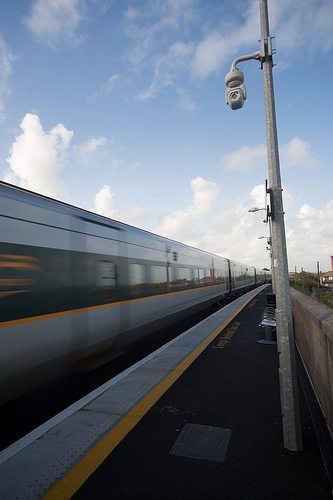

Environment
Government rejects MPs’ greener vision for HS2 rail project
The government has rejected calls from MPs to better protect the environment during the construction of the controversial HS2 rail project.
In April, the environmental audit committee urged the government to provide greater “environmental compensation” for sites of natural value and areas of ancient woodland destroyed by the line.
They said that the government’s aim to settle for the £42 billion project incurring no overall biodiversity loss is not ambitious enough, and asked for some of its considerable budget to be used to ensure the project improves England’s environment overall.
However, in a response published on Wednesday, the government said its current level of ambition is “appropriate”, because “the objective of seeking no net loss to biodiversity is very challenging for a major infrastructure project”.
The response also rejects the recommendation to lower the maximum speed of trains on the route – in order to lower carbon emissions – and refuses to ring-fence its budget for environmental measures.
Although 40% of the planned route has not been surveyed, the government also insists that it has established “an appropriate baseline” to support its environmental assessments.
The chair of the environmental audit committee, Labour MP Joan Walley, called the response “disappointing”.
“Opinion is divided on the merits or otherwise of HS2. But everyone should be united in wanting the environmental impacts of the railway to be avoided or minimised as much as possible,” she said.
“[It] is a wasted opportunity. If ancient woodlands and other critical habitats will be lost, they should at least be much more fully compensated for than currently planned by the government’s off-setting system.”
Anti-HS2 protestors have also criticised the government, calling its approach “cavalier”.
Joe Rukin, campaign manager at Stop HS2, said, “Yet again, we have had proper scrutiny of HS2 from a group of independent MPs, who have taken their time, examined the evidence and come up with well-thought out recommendations, and yet again they government have stuck their fingers in their ears and ignored every word.”
The much-criticised project, which will go ahead after a vote in the House of Commons in April, will run from London to Birmingham by 2026 and to Manchester and Leeds by 2033. Construction is now expected to begin in 2017.
Much concern has already been expressed about the impact on England’s environment. Campaigners have complained that the official environmental impact assessment of the project demonstrates “a shocking disregard” for England’s wildlife.
Offering a similar vision to that of the environmental audit committee, the Wildlife Trusts have urged the government to use HS2 to restore communities and countryside across the UK.
The Trusts say that for less than 1% of the project’s budget, developers could maintain a 1km strip of “wildlife-rich landscape” on either side of the line.
This would have both social and economic benefits, such as reduced flood risk and more resilient towns and countryside, the organisation says.
Further reading:
HS2 vote: project to go ahead despite Tory revolt
Wildlife Trusts sets out ‘greener vision’ for HS2
HS2: Church of England concerned over destruction of burial grounds
MPs voice concerns about environmental cost of HS2
Half of Britons oppose HS2, poll finds


 Environment11 months ago
Environment11 months agoAre Polymer Banknotes: an Eco-Friendly Trend or a Groundswell?

 Features10 months ago
Features10 months agoEco-Friendly Cryptocurrencies: Sustainable Investment Choices

 Features11 months ago
Features11 months agoEco-Friendly Crypto Traders Must Find the Right Exchange

 Energy10 months ago
Energy10 months agoThe Growing Role of Solar Panels in Ireland’s Energy Future





























